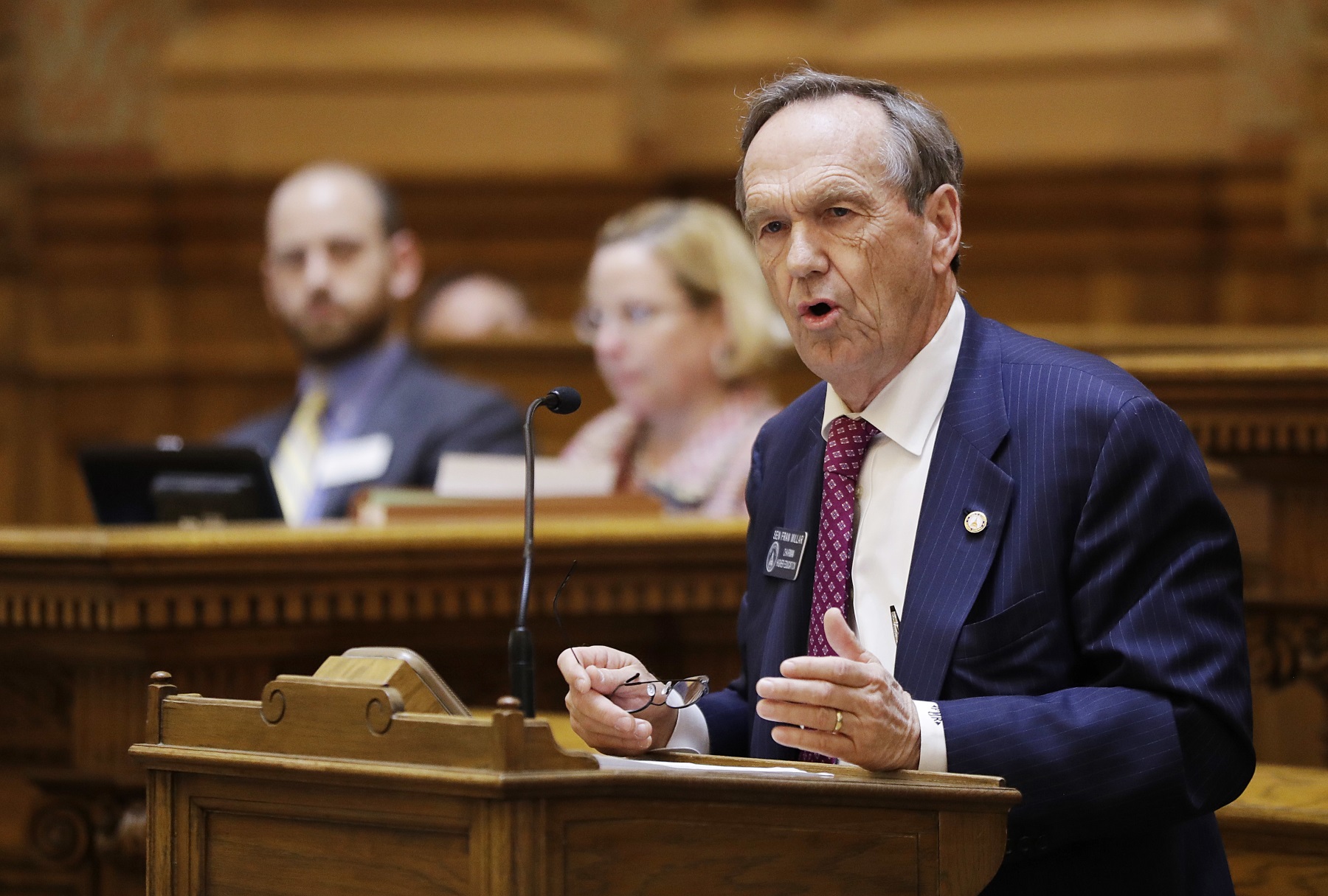Ga. Lawmakers Approve Framework For Need-Based HOPE Scholarship

Georgia Sen. Fran Millar, R-Dunwoody, shown last year, was able to revive a bill to create a need-based version of Georgia’s HOPE scholarship.
David Goldman / Associated Press
A House committee voted last week to table legislation that would create a need-based version of Georgia’s HOPE scholarship. But state Sen. Fran Millar, R-Dunwoody, was able to revive the bill.
“I think this is an opportunity for the Board of Regents,” Millar said in an interview earlier this week. “They can now do need-based aid. We’re the only state in the South that does not have that.”
Millar attached the guts of the stalled Senate Bill 405 to House Bill 787, which increases funding for state-approved charter schools. The Senate approved the legislation Tuesday. The House OK’d it Thursday night.
SB 405 ran into trouble during a House higher education committee hearing. Unlike the current HOPE scholarship, which is merit based, the bill would have established need-based financial aid for public college students. To qualify, a student’s family couldn’t make more than $48,000 a year. The student would need to have a grade point average between 2.3 and 2.9. The program would pay eligible students $1,500 a semester. The legislation also requires recipients to work a minimum of 15 hours a week.
Georgia and New Hampshire are the only two states that don’t offer need-based financial aid to college students.
Still, some committee members weren’t convinced Georgia should adopt the program.
“I have a real problem with us discussing a much lower GPA,” said state Rep. Matt Dubnik, R- Gainesville. “That was never the standard in my household. That was the work ethic that was passed to me, that you do your absolute best.”
Millar, who presented the bill to the committee, said the needs of families and students have changed over time.
After some discussion, the committee voted to table the bill. But Millar was determined it would breathe new life.
“No. 1, it’s the right thing to do by people, and No. 2, we need it to have an educated workforce,” Millar said. “And it would be particularly important, I think, to the minority community.”
The program doesn’t have a funding source yet. Millar said he plans to tackle that issue next year.








